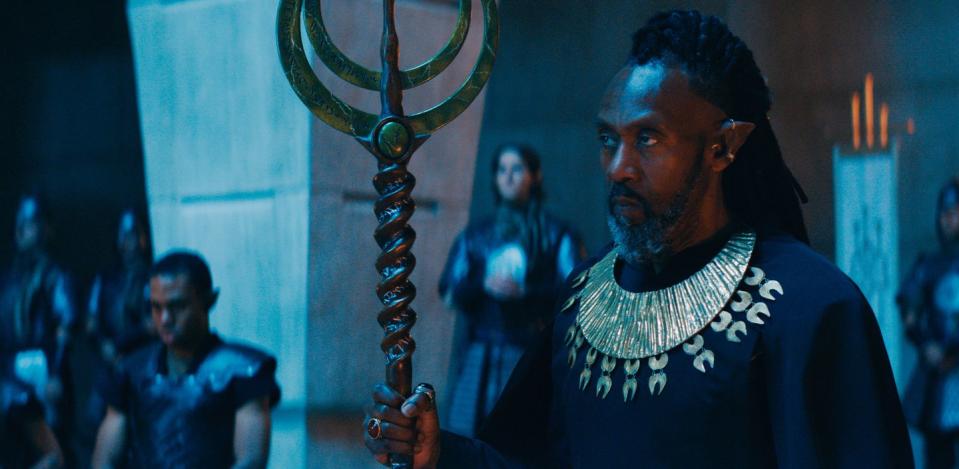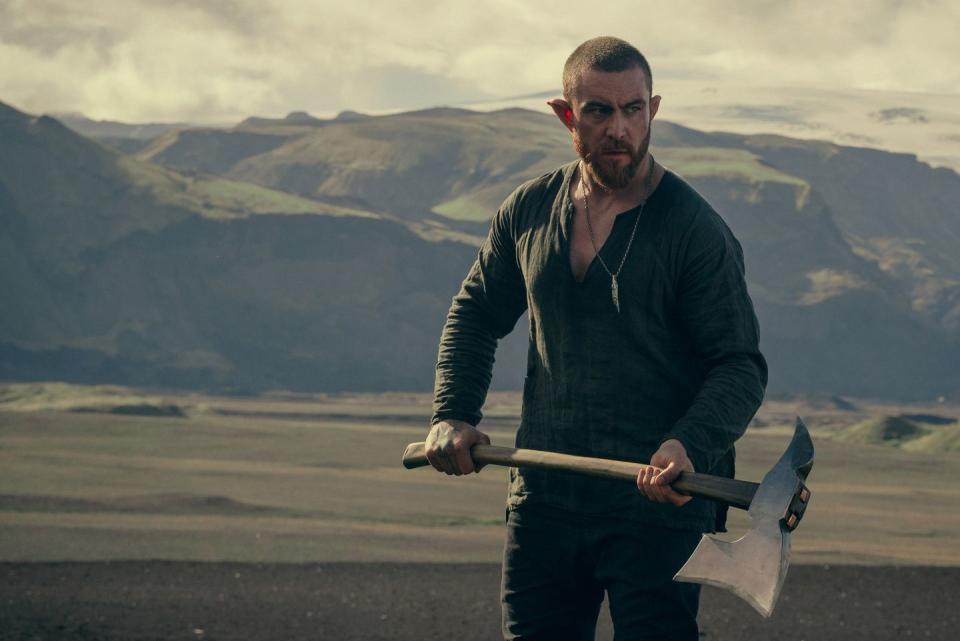The Witcher: Blood Origin review — Can this franchise survive without Henry Cavill?
- Oops!Something went wrong.Please try again later.
- Oops!Something went wrong.Please try again later.
The Witcher: Blood Origin spoilers won't be found in this review.
The Witcherverse is changing in a big way, and no, we're not just talking about the arrival of Blood Origin. After three seasons, Henry Cavill will leave The Witcher's flagship show for destinations — and bathtubs — unknown.
"We're all going to miss him," co-star Joey Batey told us just recently, and while he was talking about the cast, this also applies to pretty much anyone with an interest in the show.
Although Geralt has already been recast with Liam Hemsworth, fans are still worried about the future of this franchise, so that puts a lot of pressure on Blood Origin, The Witcher's first live-action spinoff show.
Blood Origin isn't trying to be The Witcher though, and it's all the better for it.
Set 1,200 years before Jaskier first tossed a coin to his Witcher, the prequel follows an unlikely band of heroes who fight to stop a tyrant from destroying everything. And by "everything", we really do mean everything. Because this isn't just your regular fantasy show. We're living in a post-Marvel world now, which means that a multiverse of madness is coming to The Continent.
To be fair, this conceit has always been intrinsic to The Witcher books. In fact, the main idea behind this entire franchise is that monsters and humans (same same) entered this world during a cosmic event known as The Conjunction of the Spheres. However, no book or game or show has really explored this key moment properly yet. At least, not until now.
Last year, Blood Origin co-creator Lauren Schmidt Hissrich told us that the prequel will feel different because the world itself was so different back before the Conjunction:
"One of the things that [co-writer] Declan de Barra brought to it is: what if that world is not a medieval version of our medieval world, but in fact an age of enlightenment? How is it slightly more modern? How is that civilisation more learned in some ways? And then how do we start to lay the stepping stones to where we are now?"

And Hissrich was right. This is a world that would be almost entirely unrecognisable to Geralt. Yes, there are still elves and swords and battles to be won, but Blood Origin's Continent is clearly more advanced than the world our regular Witcher finds himself in, which is an intriguing direction to take for a prequel.
And we're not just talking visually either. Beyond the intricate, expensive-looking world design, Blood Origin is also more advanced when it comes to reflecting real-life diversity too. White characters no longer stand at the forefront in the way they do elsewhere, and varied body types are more commonplace here as well.
Queerness — which is still noticeably lacking in the main show — has also been woven in more organically throughout the prequel. Now, this shouldn't be groundbreaking, but it absolutely still is in a world where not even the biggest fantasy shows can get it right.
That's not to say the story itself is particularly groundbreaking though. While all these aforementioned elements help set Blood Origin apart from The Witcher (along with other fantasy shows of its ilk), the plot is definitely one you've seen before.
Jaskier even jokes about that at one point early on, which makes the fact it's true even harder to swallow.
What is different about all this though is how quickly the story unfolds. Netflix is notoriously bad when it comes to pacing across the entire board, and The Witcher is guilty of that too, so the decision to cut Blood Origin down to just four episodes feels like a deliberate rebuttal to this. And it's one that we welcome, but with a few caveats.
By condensing the main arc in this way, Blood Origin avoids some of the tedium that can often set in with similar shows around the halfway mark. The problem now, though, is that the story is almost too short.
With such a limited runtime, we don't spend enough time getting to know this brand-new cast of characters, so inevitably some fall by the wayside. Yet four episodes is still too long to fully capture the punchy, thrilling pace that a movie could nail. What we're left with is a strange hybrid of TV and film that fails to fully emulate the highs of either.
Out of that cast, highlights include Laurence O'Fuarain as Fjall, a muscular brute with a tender heart, Sex Education's Mirren Mack as a tyrannical princess, and Lenny Henry in a role that's literally worlds away from his work in Rings of Power.
Rest assured, you're also going to fall in love with Francesca Mills, who plays a potty-mouthed dwarf whose tragic backstory is easily the show's most heartfelt. In fact, it's characters like her Meldorf who really make us wish this wasn't just a one-and-done series.
Aside from Minnie Driver's intriguing, franchise-spanning role, it's likely that we won't see many of these characters again, and that's a shame, because there's real potential here to push past the teething problems.
But as it stands, The Witcher: Blood Origin lacks one central figure as strong enough as Henry Cavill to pull it all together.

That's not to say Sophia Brown isn't up to the task as Éile, or that Michelle Yeoh isn't her typically brilliant self. It's just that most of these characters, and therefore Blood Origin itself, remain frustratingly limited, like rough sketches that haven't quite been fleshed out enough.
So as it stands, we do miss Henry still, but Blood Origin has also given us hope that the franchise can continue on without him because there are glimmers of something really special here that just about warrant Netflix's 'Special Event' label for the show.
The Witcher seasons 1-2 are now streaming on Netflix. Season 3 is in production, and spin-off The Witcher: Blood Origin premieres on December 25, also on Netflix.
You Might Also Like

